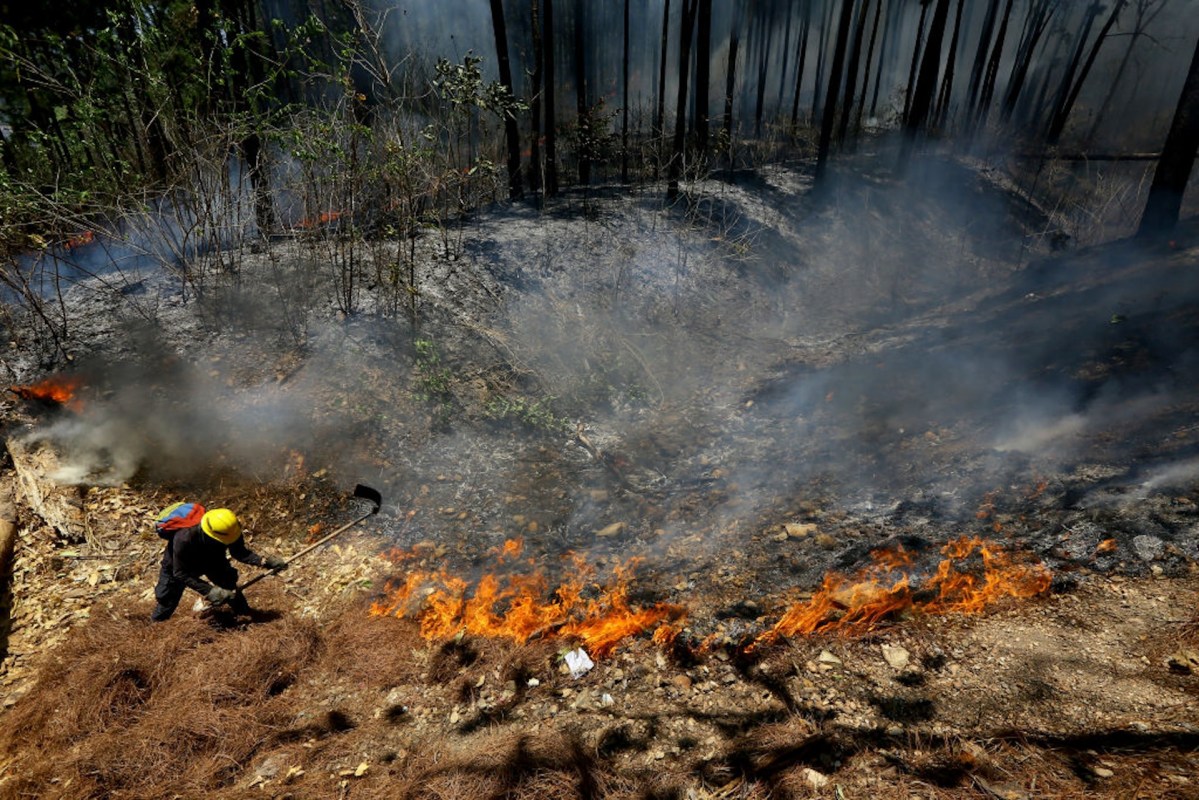Venezuelans are battling a record number of wildfires as the Amazon rainforest region battles a months-long drought.
What's happening?
Satellites registered more than 30,200 fire points in Venezuela from January to March, Reuters reported. This is the highest number ever for that period since records started in 1999. These fires are threatening Venezuela's Amazon region as well as other forests and grasslands.
Fires are often set to clear land for agriculture, but some are spreading out of control because of high temperatures mixed with a drought fueled by a warming planet and El Niño, a natural weather phenomenon.
The fires aren't confined to Venezuela — some are also spilling over into Brazil's Roraima state, threatening indigenous communities. Guyana, Suriname, and Colombia are also battling devastating wildfires of their own.
Why are these wildfires concerning?
Some of Venezuela's fires are blanketing communities in smoke. This is bad news, as wildfire smoke contains dangerous pollutants, and inhaling it can lead to asthma attacks, heart attacks, and stroke, among other health problems, according to the American Lung Association.
It's also forcing evacuations — in Uverito, 315 families were forced to leave their homes.
Experts say that Venezuela's current blazes could be a worrying sign for what's to come as the dry season approaches.
"Everything is indicating we're going to see other events of catastrophic fires — megafires that are huge in size and height," Manoela Machado, a fire researcher at the University of Oxford, told Reuters.
Though droughts and other extreme weather are nothing new, they are a symptom of an overheating planet. Scientists largely agree that climate change makes disasters more common and intense, and one expert compared it to "steroids" for weather.
Examples abound. In the past year, the world has suffered a number of devastating droughts. Lack of precipitation in the Amazon has caused more than record-breaking fire seasons — it has also led to a shortage of drinkable water in one region of Brazil.
Meanwhile, in Spain, officials have had to enforce severe water restrictions. Plus, experts warned that droughts in Southern Africa, Central America, and northern South America could threaten food security in those regions.
What's being done about the wildfires?
Around 400 Venezuelan firefighters recently fought a major blaze that is threatening Henri Pittier National Park. In March, the country's environment ministry announced it had launched a coordinated effort with helicopters and additional equipment to battle the blaze here.
But according to Machado, affected countries aren't doing enough to prevent and combat fires. She said that governments should enforce bans on setting fires during dry periods, quicken their response times, and employ firefighters year-round.
Join our free newsletter for cool news and cool tips that make it easy to help yourself while helping the planet.









